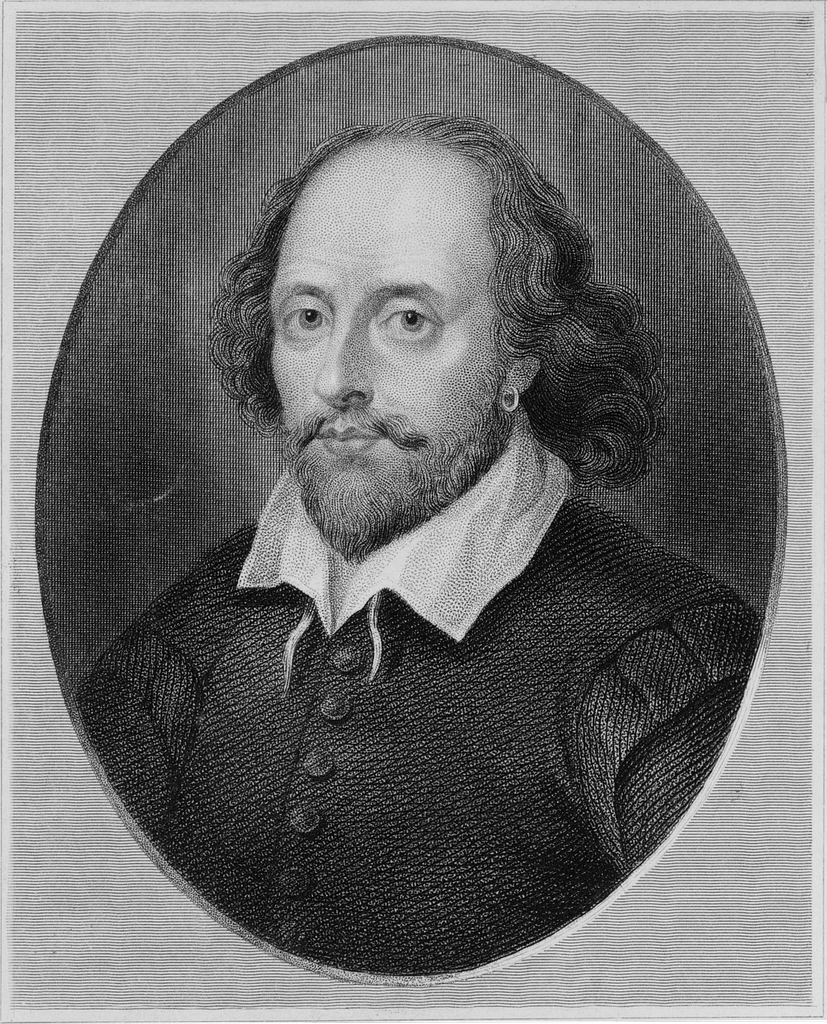William Shakespeare

William Shakespeare also refered to as The Bard of Avon, occupies a unique place in the world of literature. Other poets such as Homer, Ovid, Dante or Tolstoy, exceeded national bariers in some shape or form, but none come as close to the living reputation of shakespeare; whose plays written in the late 16th and 17th century, to this very day are still performed and read, by an even broader and diverse public than they were originaly intended for. The prophecy of his late contemporary Ben Jonson that Shakespeare “is not of age but for all time ” has come to be.
Shakespeare was born on April 23, 1564, in Stratford-upon-Avon in England. His baptism occurred on Wednesday, April 26, 1564 (in keeping with the usual Elizabethan practice of baptizing children three days after their birth). His father was John Shakespeare a glove maker, grain merchant and town official of Stratford. His mother Mary, was the daughter of Robert Arden, a prosperous gentleman-farmer. Recent research into John Shakespeare’s life, suggests that William Shakespeare was raised as a Catholic. Being the son of a local businessman, Shakespeare probably attended the local grammar school The King’s New School, where he received a good education. There is evidence to suggest that due to his father’s declining fortunes, Shakespeare was unable to complete his schooling and was subsequently required to help with the family business.
Under a bond dated November 28, 1582, William Shakespeare at the age of 18 married Anne Hathaway, eight years his his senior. Much speculation has arisen as to the happiness of that marriage, and it is widely thought that Shakespeare may have been forced to marry Anne Hathaway because she was pregnant, owing to the birth of their daughter Susanna, six months later. Researchers have also noted that Shakespeare in his will refers to Hathaway as his “second best bed” which can be read as further evidence of their unhappy marriage.
The years that run from1585 to 1592, are referred to as “the seven lost years” owing to the fact that we have few records of Shakespeare’s life during this period, before his name appears in London theatre records. The absence of any factual information makes these years a rich source of speculation. Some speculate that Shakespeare may have been a soldier for a period of time. A great deal of this theory is based upon evidence from his plays and the attention given to the themes of corruption in the army in Henry IV, parts 1 and 2 and Henry V. Recent research has also hinted that Shakespeare left Stratford to go to Lancashire in northern England. There, he may have worked as an actor and tutor in a noble household. After which he traveled to London with his fellow actors. It is believed he first came to London to start his apprenticeship in late 1585. Owing to the plague, London Teatres were often closed in the years between 1592 and 1594, during this period of scarsity of work, the poet probably received an income from his patron The Earl of Southampton. In 1594 Shakespeare joines the leading theatre company The Lord Chamberlain’s men later in 1599 to become a cooperative The King’s Men that helped build and operate the Globe thatre that was to be the most famous playhouse of its time.
Even though Shakespeare was considered the foremost dramatist of his period, evidence suggests that he, as well as his contemporaries, looked more to poetry rather than playwriting as a means to enduring fame. Between 1593 and 1601 he wrote 154 sonnets , which were later published in 1609 with the title The Sonnets of Shakespeare. But probably most remarkable of all, appart from his poems and plays Shakespeare inveted thousands of new words, often contorting or combining Latin and French. Many of these words and quotes have become part of the English language and have been translated into other languages and are to this day of common use such as: bandit, critic, uncomfortable, manager or cold blooded.
Shakespeare also wrote more than thirty plays, these can be divided into four categories: histories, commedies, tragedies and romances. His first plays were mainly commedies or histories such as Henry VI and The Commedy of Errors. In 1896 he wrote Romeo and Juliet, and over the next ten years, went on to write many more world renowned plays such as: Hamlet, King Lear, Othello, Julius Caesar, Anthony and Cleopatra as well as Macbeth. In his final years the playwrite turned to romantic with plays, such as: The Tempest, Cymbeline and a Winter’s Tale. Shakespeare retired from stage just after 1612 and returned to his hometown Stratford, where he died on April 23 1616, and is burried in the same church in which he was baptized. His final verse on his tomb, true to his style reads:
